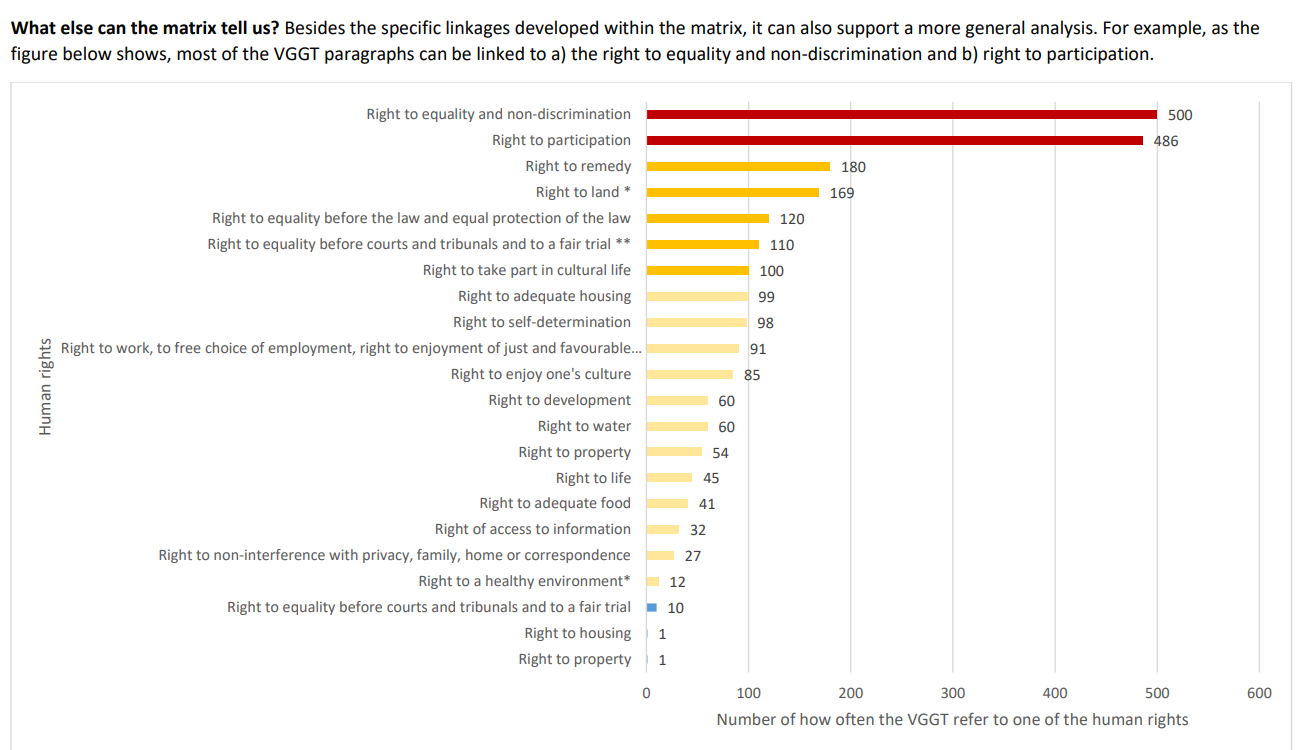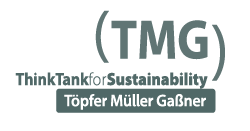Achieving the right to land: An innovative tool for tracking land governance in Malawi
Exploring how a human rights approach will strengthen land rights
by Harry Stopes, Wangu Mwangi, Anna Kramer | 2021-03-25

Despite producing most of the world’s food, a large proportion of smallholder farmers and pastoralists — and especially women — lack secure tenure rights over land. The resulting uncertainty not only impacts their food security, or ability to earn a decent livelihood, but also discourages them from investing in good land management practices, such as planting trees, or preventing soil erosion. Moreover, insecure land tenure arrangements, both on privately-owned and communal land, often contribute to conflicts that can have devastating consequences for families or entire communities.
Enacted in 2016, Malawi’s National Land Policy introduced several laws to ensure tenure security and more equitable access to land. To date, however, there has been little progress in implementing these legal safeguards, placing further pressure on smallholders’ access to land, and leading to more incidents of land conflict. These are exacerbated by increasing pressure on available agrarian land due to population growth, urbanisation, and the promotion of investment in large-scale agriculture.
The landmark Voluntary Guidelines on the Responsible Governance of Tenure of Land, Fisheries and Forests (commonly referred to as the Voluntary Guidelines, or VGGT) were developed by the Food and Agriculture Organization of the UN (FAO) to support countries in fulfilling their obligation to protect the tenure rights of all their citizens. On 16th March, 2021, TMG Research and the Danish Institute for Human Rights (DIHR) hosted a consultation workshop to examine how this global framework can be applied in the Malawian context. Participants included representatives from the Malawi Human Rights Commission, International Land Coalition, FAO, Kenya Commission for Human Rights, Transparency International, TMG Research and DIHR, along with several academics and independent human rights consultants.
Drawing on the VGGT, the discussions explored a number of a practical tools for implementing a human rights-based approach to monitoring land governance.
Innovation in land governance monitoring
By linking binding (and nationally endorsed) human rights instruments to the Voluntary Guidelines, this innovative approach seeks to strengthen responsible land governance against a background of increasing pressure on, and conflict over, land resources.
A graph developed by TMG Research for the ‘VGGT x Human Rights Matrix’, a central component of the proposed monitoring framework. The Y-axis lists human rights, the X-axis indicates how frequently these rights are referenced in the VGGT, demonstrating the clear potential for complementarity between VGGT and human rights.

A graph developed by TMG Research for the ‘VGGT x Human Rights Matrix’, a central component of the proposed monitoring framework. The Y-axis lists human rights, the X-axis indicates how frequently these rights are referenced in the VGGT, demonstrating the clear potential for complementarity between VGGT and human rights.
A key theme of the workshop, emphasised by several contributors, was that there is no need to reinvent the wheel. A human rights-based approach, including qualitative as well as quantitative measures, can complement and strengthen existing mechanisms for monitoring land governance. The proposed Human Rights-based Land Governance Monitoring (HR-LGM) framework aims to build upon existing approaches. The global land governance index LANDex, which was presented during the workshop, is just one example of an existing land governance monitoring framework, which integrates indicators from various sources and draws upon different methodologies.
What difference can a human rights-based monitoring approach make?
Human rights-based land governance monitoring will add value to existing initiatives by translating universally agreed — and legally binding — human rights standards and principles into operational and tangible attributes that can be measured. By focusing attention on the root causes of land conflicts, the processes by which vulnerable groups are marginalised, and the legal, administrative and other barriers and threats they face, HR-LGM will strengthen accountability and empower people, especially the most marginalised. Hence, systematic human rights-based land governance can provide a stronger basis for advocacy and legal claims by rights-holders, better equipping them to hold duty bearers accountable.
A further observation emerging from the workshop is that land violations, as one speaker noted, are “up close and personal.” While the VGGT undoubtedly represent an important framework and milestone agreement, the lack of a system to follow up on or enforce its provisions almost ten years after they were agreed has limited its effectiveness. Land conflicts have profound consequences in the lives of those affected and the subject, important as it already is, will only become more important in the coming years. Urbanisation, climate migration, and the need for carbon sequestration will all place great pressures on land. But which land? It is vital that human rights are upheld in the land conflicts to follow.
Implementing the tool
Following the launch of the monitoring tool, TMG Research has embarked on the next phase of the project, which involves rolling out human rights-based monitoring of land governance in Malawi, together with local partners. By focusing on real-life land conflicts, we aim to develop clear ideas about how to operationalise the concepts we have developed over the last few months. From this work we aim to further define the HR-LGM approach into a practical methodology that is applicable on the ground, while also speaking to a broader human rights and land governance community. As outlined during the workshop by DIHR, the methodology will be developed with the full participation of its intended users, such as national human rights institutions, building on binding human rights standards and drawing on a wide range of data.
Reflecting on the discussions, Anna Kramer, the project coordinator for TMG Research, emphasised that the workshop demonstrated the productive possibilities of linking the land governance and human rights communities. “The combination of a qualitative, case-based approach focusing on procedural rights with a quantitative, indicator-based approach is very promising,” she explained. “In the future, we want to use this approach to illustrate that human rights are a vital basis for protecting food security and enforcing access to land for food security.”
About the project
TMG Research and the DIHR are collaborators on the project for Human Rights-Based Land Governance Monitoring (HR-LGM), led by TMG and funded by the German Federal Ministry for Economic Cooperation and Development. Working in Malawi with local partners, HR-LGM will link land conflicts to possible human rights violations as a way of developing tools that promote accountability in land governance.
For updates on the progress of the project, as well as of future consultation and discussion activities, please visit the project page
 Urban Food FuturesFeb 09, 2026
Urban Food FuturesFeb 09, 2026Pushing the horizon: Urban farming and community-led innovation in Mukuru informal settlement
A small community-run greenhouse in Mukuru is offering insights into how controlled-environment agriculture can strengthen food security in urban environments under increasing pressure—and a look into the future of food systems in informal settlements.
Christian Sonntag, Emmanuel Atamba, Lumi Youm
 Land GovernanceDec 18, 2025
Land GovernanceDec 18, 2025Land tenure, women’s land rights, and resilience: Reflections from CRIC23 toward UNCCD COP17
Our experts discuss what the exchanges at CRIC23 highlighted and revealed about the role of secure and gender-equitable land tenure in the UNCCD's work ahead of the 2026 triple COP year.
Frederike Klümper, Washe Kazungu
 Urban Food FuturesDec 09, 2025
Urban Food FuturesDec 09, 2025The story of Mukuru's Urban Nutrition Hub
In Mukuru informal settlement, a safe haven for women has grown into the Urban Nutrition Hub, a multi-purpose space for nutrition education, training, and community development, demonstrating the potential of grassroots community-owned innovation..
Serah Kiragu-Wissler
Written by Harry Stopes, Wangu Mwangi, Anna Kramer


